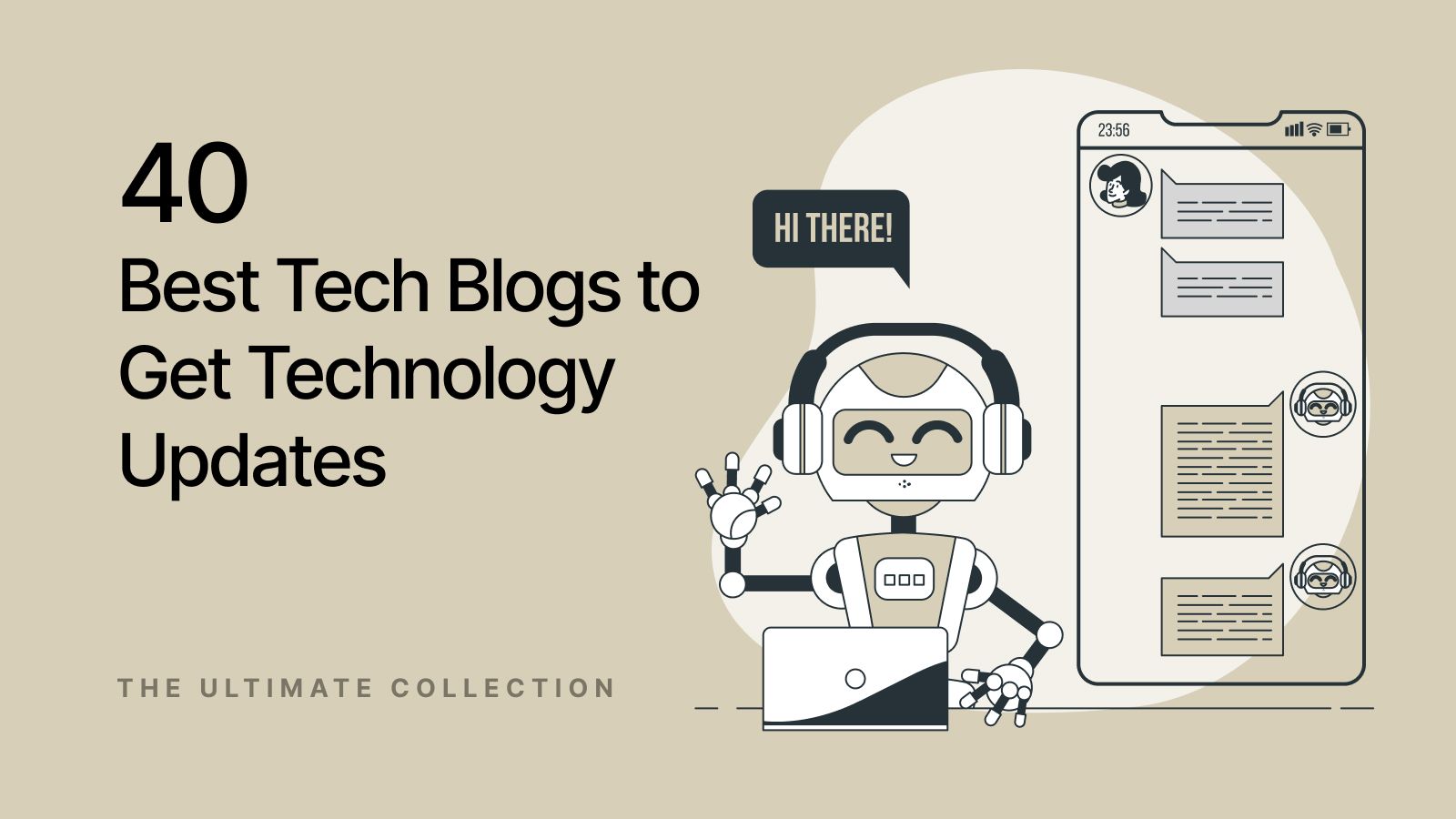Check Out Thought-Provoking Articles on the Best tech blog for Tech Lovers
Check Out Thought-Provoking Articles on the Best tech blog for Tech Lovers
Blog Article
Exactly How Blockchain Modern Technology Is Revolutionizing Data Safety
Blockchain technology is fundamentally altering the landscape of data protection by introducing a decentralized structure that promises improved transparency and strength. Unlike traditional systems, which count on centralized information repositories, blockchain distributes information across a network, lessening susceptabilities and single factors of failure. Using innovative cryptographic methods makes sure that data stays tamper-proof, promoting depend on amongst customers and stakeholders. As industries quickly adapt to this innovation, questions develop concerning its broader effect and possible obstacles. What ramifications does this change hold for future data security methods and governing frameworks? The answers might surprise you (Best tech blog).
The Fundamentals of Blockchain
Blockchain innovation, an advanced concept in digital data monitoring, fundamentally changes just how information is kept and secured. At its core, a blockchain is a dispersed ledger that videotapes purchases throughout a network of computers, making certain openness and immutability.
Trick to understanding blockchain is the hashing procedure, which secures transaction information right into an one-of-a-kind alphanumeric code. This cryptographic function guarantees that any change in the transaction information leads to a totally different hash, therefore guarding against tampering. The agreement mechanism, one more important element, validates and validates brand-new deals via a network of nodes, consequently removing the need for a central authority.
Additionally, blockchain's append-only framework ensures that data, as soon as included, can not be erased or modified. This particular guarantees a proven and irreversible record of transactions, fostering count on amongst participants. Because of this, blockchain provides a durable framework for data integrity, using markets a trusted technique for tracking and handling digital details in a secure, clear manner.
Decentralization and Safety And Security
Decentralization, a core concept of blockchain technology, considerably improves data safety by dispersing control throughout a network rather than relying on a single, centralized entity. By dispersing data throughout countless nodes, blockchain makes sure that also if one node is compromised, the entire network stays safe.

Additionally, decentralization encourages users with greater control over their data. Each participant in the network has accessibility to the entire blockchain, allowing them to confirm and examine purchases independently. This openness promotes trust amongst individuals, as they do not have to count on a main authority to make certain data honesty. On the whole, decentralization is important in boosting data safety in blockchain networks.

Cryptographic Methods
At the heart of blockchain innovation, cryptographic methods play an essential role in securing information, ensuring both privacy and honesty. Cryptography in blockchain utilizes a combination of asymmetric and symmetric formulas to encrypt data, making it easily accessible just to licensed events.
Hash features are an additional critical component, transforming input information right into a fixed-size string of personalities, effectively producing an one-of-a-kind electronic fingerprint for each block. This makes sure that any effort to modify the data will cause a totally various hash, hence preserving the immutability of the blockchain. Additionally, electronic trademarks confirm the authenticity and integrity of purchases, providing a layer of non-repudiation.
The Visit Website decentralized nature of blockchain, combined with durable cryptographic techniques, removes the requirement for middlemans, minimizing possible vulnerabilities. As blockchain modern technology advances, innovations in cryptography my response such as zero-knowledge proofs and homomorphic encryption continue to boost safety and security steps, further fortifying data defense in this revolutionary electronic ledger system.
Use Cases Throughout Industries

In the healthcare industry, blockchain makes certain the safe storage and sharing of person records, advertising interoperability while safeguarding sensitive data from unauthorized access. This technology equips patients with control over their clinical history and helps with seamless sychronisation amongst health care providers.
Supply chain management benefits dramatically from blockchain's immutable ledger, which ensures traceability and authenticity of items from beginning to consumer. By enhancing openness, blockchain helps reduce issues such as counterfeiting and dishonest sourcing.
Additionally, blockchain's decentralized nature is improving the energy sector by enabling peer-to-peer power trading, where consumers can buy and offer excess renewable resource straight. This fosters a much more lasting and effective power ecosystem.
In the realm of copyright, blockchain gives a tamper-proof system for creators to register and safeguard their jobs, making certain rightful attribution and reasonable payment. These varied usage instances underscore blockchain's function as a critical pressure in redefining information safety throughout industries.
Future of Data Defense
As we look to the future of information defense, blockchain innovation is positioned to play a pivotal function in protecting electronic information. With its decentralized and immutable characteristics, blockchain provides a durable framework for securing important link delicate information against unauthorized access and cyber hazards. This innovation makes certain that when data is tape-recorded, it is virtually difficult to alter without detection, hence providing a considerable advantage over typical information storage space methods.
The assimilation of blockchain with other innovative innovations, such as fabricated intelligence and the Internet of Points (IoT), is anticipated to boost information defense techniques better. By leveraging wise agreements, companies can apply and automate safety procedures, decreasing human mistake and increasing efficiency. Furthermore, blockchain's capability to provide deducible and clear deals will strengthen depend on and accountability in data management methods.
As regulative landscapes advance, blockchain's compliance-friendly nature will certainly end up being significantly relevant. It can aid organizations fulfill rigid information protection policies, such as the General Data Protection Guideline (GDPR) and the California Customer Personal Privacy Act (CCPA), by offering proven records of information handling activities. Inevitably, blockchain's special attributes setting it as a transformative device in the ongoing pursuit to safeguard the digital globe versus ever-evolving cyber threats.
Final Thought
Blockchain technology stands for a standard shift in data protection by leveraging decentralization and cryptographic techniques to boost openness, trust, and information honesty. Its capacity to get rid of single factors of failing and employ agreement mechanisms considerably lowers the risk of fraudulence and cyberattacks. This cutting-edge structure not only encourages users with greater control over their information yet additionally aligns with regulative conformity. As cyber dangers develop, blockchain arises as an essential tool for durable data protection across different sectors.
Blockchain innovation is fundamentally altering the landscape of data protection by presenting a decentralized structure that promises improved openness and resilience. Unlike standard systems, which rely on centralized information databases, blockchain disperses information across a network, reducing susceptabilities and solitary factors of failure.Decentralization, a core concept of blockchain modern technology, considerably enhances information safety and security by distributing control across a network rather than counting on a particular, centralized entity.At the heart of blockchain innovation, cryptographic strategies play an essential function in securing data, guaranteeing both discretion and integrity.Blockchain innovation represents a standard change in data protection by leveraging decentralization and cryptographic strategies to improve transparency, trust, and data integrity.
Report this page